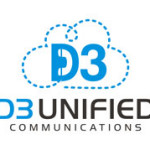A recent ruling by the United States’ Securities and Exchange Commission will change how everyday American citizens can invest their money. The SEC’s approval of Title III of the Jumpstart Our Business Startups Act (JOBS Act) opens the door for non-accredited investors to participate in the rapidly growing field of equity crowdfunding.
That will mean an expanded investor base — and greater potential capital gain — for startups and businesses across the country.
Equity crowdfunding allows the public to buy into parts of a company that are not yet on the stock market. Investors provide a startup or business with money in exchange for partial ownership and equity in that company. This can be incredibly beneficial for both small startups and large businesses alike — any company that wants to generate more capital and complement funds that may have been raised through venture capitalists or loaned through conventional banks.
Prior to this SEC ruling, only a small segment of the American population could take advantage of equity crowdfunding. Investors required accreditation, a status granted only after earning at least $200,000 a year for a minimum of two consecutive years. Alternatively, investors had to hold more than $1 million in assets, not including their home. Only 3% of Americans fell into that salary range.
The October 2015 ruling is significant, and marks the first time in more than 80 years that all Americans can invest in private equity, regardless of their earnings.
The impact will level the playing field between venture capitalists, angel investors, and everyday Americans. It will also likely grow equity crowdfunding’s popularity even further, elevating it perhaps to the level of reward-based crowdfunding through online platforms such as Kickstarter and Indiegogo.
Here are some highlights of what the new Title III ruling means:
- Investors making more than $100,000 a year can invest up to 10% of their annual income in equity crowdfunding;
- Investors making less than $100,000 can invest $2,000 or up to 5% of their net worth;
- Startups can now use equity crowdfunding to raise up to $1 million each year.
What Does This Mean for My Startup?
As mentioned above, this shift will greatly expand the potential investor base for your business. It also represents a shift away from the elevator pitch given exclusively to venture capitalists and angel investors in startup hotspots. Finding capital is no longer as location and network based, and this new model will reward entrepreneurs who can communicate about their product or service and then capitalize financially on the public buzz. As Rod Turner, co-founder of Manhattan Street Capital told Forbes, this is a revolutionary development that will democratize the process of investing in startups.
The recent Title III ruling does place some onus on startups wanting to tap into this new pool of investors.
For example, private companies looking to raise more than $500,000 will be required to publish detailed annual financial audits. All companies taking advantage of equity crowdfunding will need to disclose their financial condition and provide investors with information about all officers, directors, and those who own more than 20% of the company. Equity crowdfunding can also only be done through SEC registered and approved funding platforms.
The SEC’s disclosure requirements have some critics saying the process will be too challenging, time consuming, and costly for businesses in their advent.
What Comes Next?
As of October 23, 2015, the approved changes to Title III of the JOBS Act are undergoing a 90-day public comment period. After those three months, the proposal will once again be voted on and formally passed by the SEC.
If you have any questions about the changes to the JOBS Act, contact the team at PPM Lawyers or leave a comment below!


















